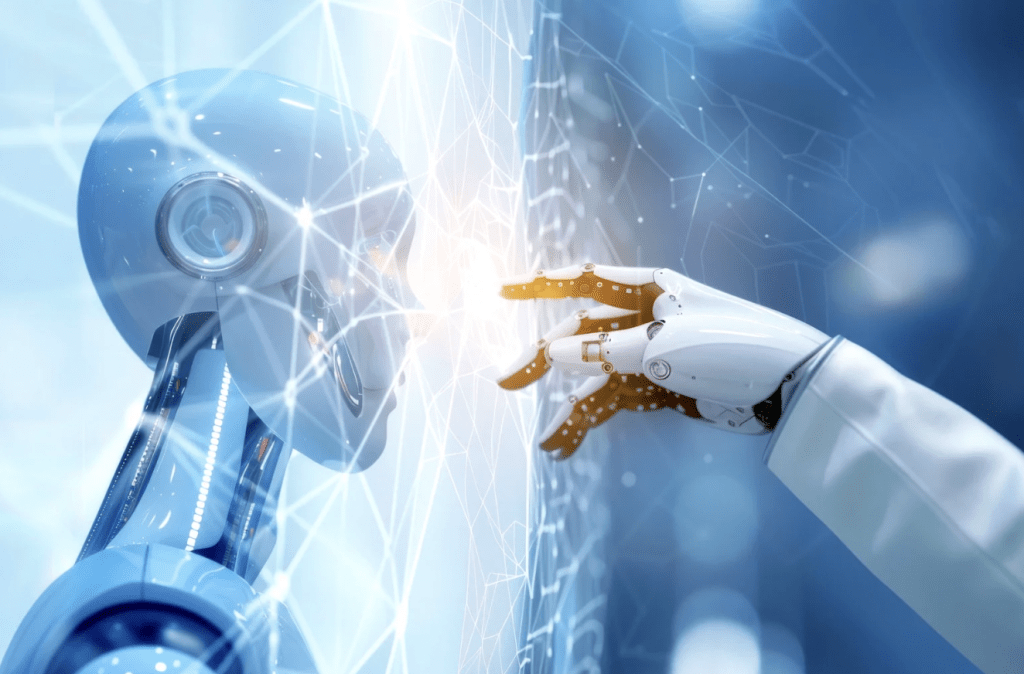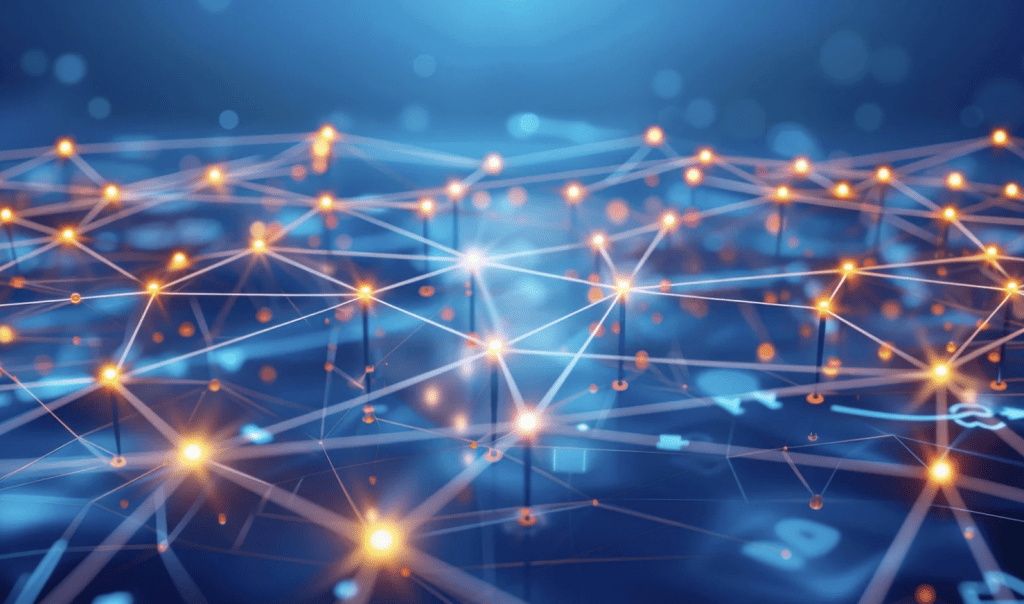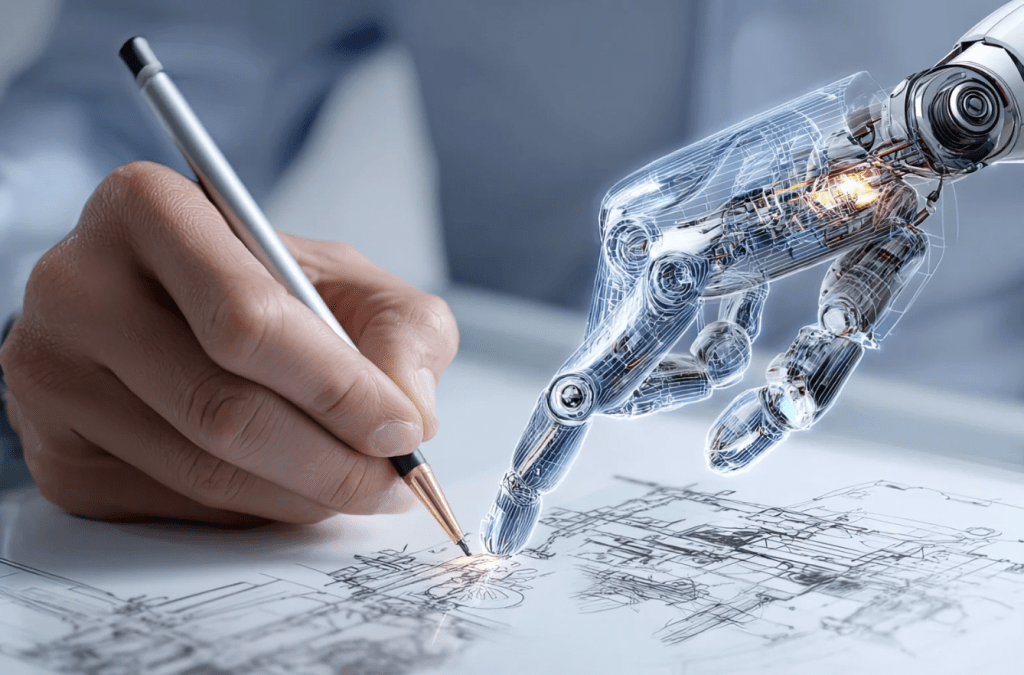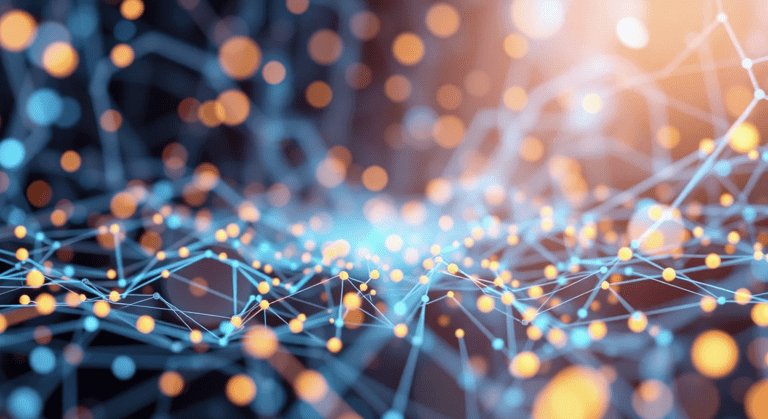For more than a decade, AI was confined to research labs. Scientists were not sure about its implications on a global scale once launched. The results it produced, the data it consumed for training, and the self-learning algorithms it designed were too complex to analyze by humans. Expert opinions were vastly needed for validating the results and precision of the data to feed it. Nevertheless, after rigorous testing and multi-disciplinary collaboration, AI was finally launched to the masses a few years ago. Its advent into modern society exploded our creativity, productivity, analysis, and communication to a vast extent.
But thankfully, all of these changes have not shown any devastating effects so far. Things seem to be under control in all the domains it has spread into so far. But the question remains, what are the implications of AI in the future? The next decade of AI is not just about better tools and technologies but mostly about reshaping society at large. We can only predict approximately, for no one knows what direction we will choose as a collective force through AI. The changes have already started showing in our workplaces, creative industries, regulations, and ethics that must act as the guardrails. Where will it lead us in the future? Let’s explore a few possibilities.

Towards Artificial General Intelligence
The first milestone in the future of AI is AGI. So far, AI has been used as a specialist in different fields. For every domain, there’s a separate and specialized AI tool, be it for creative, financial analysis, social media, or software development. AGI is one step ahead of it when AI becomes a generalist. It is closest to any functioning human who is capable enough to handle all domains of their lives with a general intelligence. A common person has a distributed attention and general knowledge in domains like their health, finance, job, relationships, hobbies, and passions. AGI would almost be a replica of this. But apart from becoming a generalist, another important human attribute it will possess is common sense. This is what will differentiate it from other machines and make it more like a human, almost human.
That makes us think, if another species as intelligent as humans becomes alive on this planet, will they act as our collaborators or competitors? Will our intention of using them to serve us align with their autonomous purpose? This is called an AI alignment problem, which scientists are currently grappling with. Hopefully, we will see a solution to it soon before machines become self-aware.
Regulation and Governance
AI philosophers like Yuval Noah Harari and Nick Bostrom are playing a crucial role in spreading awareness about the hazardous effects of using AI. This calls for governments to create laws and regulations that ensure a balance in control with freedom and safety in innovation. The Internet has already shown us that international boundaries are not so rigid anymore. AI will take it to the next level. This will require international cooperation in forming regulatory laws for the collective good of humanity.
Strict Compliance
Geopolitics must be kept aside, and a global democratic system would be needed to design AI laws that ensure that no leaks are present in the global AI network. Companies must go through stricter compliance laws and transparent policies that demonstrate safety for their customers using the AI systems they build. The data presented to train AI systems must be clean and devoid of any cultural, moral, or social biases.

Cross-collaboration between Philosophers and Scientists
Timely audits of the AI systems must be performed to keep the self-evolving systems on track. Incorporating ethical values into AI systems will not only depend on regulatory systems, but also needs a close collaboration between philosophers and AI scientists. Philosophers would help confront scientists with all the possible ethical standards they might overlook while training AI algorithms. Their job is to pose all the possible questions that may act as guardrails to keep AI’s future on the right track.
Transformation of the Workplace
Industries will go through massive shifts in the way they approach work. New roles will emerge while the previous ones with repetitive, mundane tasks will dissolve. Automation of the business processes and operations will take place in all shapes and sizes. Software companies will not only automate their development processes but also their testing approaches. Software products will go through massive advancements in their quality by infusing AI for QA testing.
Is it a Boom or a Doom?
As a huge workforce gets released from repetitive and mundane tasks, the demand for knowledge workers will rise. People will get more bandwidth for using critical thinking and creativity to elevate their outputs while collaborating with AI. Those who currently fear losing their job must prepare themselves to rise above AI. They should be able to supervise AI agents by upgrading their knowledge in their vocational fields. But one question that still looms in our minds is whether AI will liberate us from mundane work, or will it bring inequality in society? Social and political scientists should conduct research in this field to be able to propagate a flourishing society once AI becomes common.

AI in Creative Industries
We are already in the era when AI-generated content is widely being adopted by the creative industry. The future holds even brighter for those who can generate novel ideas through AI tools within the AI-generated sea of creativity. The competition would be between those who use the AI tools most creatively. Prompt engineering is one such role that has emerged after AI has become widespread. It is not just about getting AI to make things done for you, but how intelligently you can give instructions for it to generate outstanding results.
Human-machine Interaction
The creative industry will thrive through those who learn the great art of human-machine interaction in the most effective way. E.g., Multi-step prompting is one approach where you give instructions in the way machines understand most clearly to produce your closest expected results. Currently, AI is being used just as a tool, but in the future, it will work as a co-creator in all fields, like music, movies, games, and advertising. And their products will not only be acknowledged but also evaluated with equality and justice.
Closing Thoughts
So far, AI’s journey has been all independent. It was all about its own evolution through machine learning algorithms. But the future would be a collective evolution of our species in collaboration with AI. Societies, cultures, and communities will be reshaped as the next wave of AI comes. One thing we must be aware of is that AI is the clear reflection of humanity. It not only actualizes our imagination and potential but also amplifies our flaws. A bias in a small group can become training data for AI and thereby gets amplified through mass adoption.
Hence, regulatory acts must be extremely careful before such systems roll out into the marketplace. For the first time, we are witnessing a new species that is becoming alive on this planet that has a bigger intellectual potential than us. We would no longer be the most evolved species on this planet. The next 10 years would be for us to learn how to co-exist with Artificial Intelligence. Once that has been figured out, there’s no limit to what we can achieve as the future unfolds beyond that.
WE SAID THIS: Don’t Miss…Egypt to Roll Out Vehicle IoT for Safer Driving and Smarter Road Experiences



